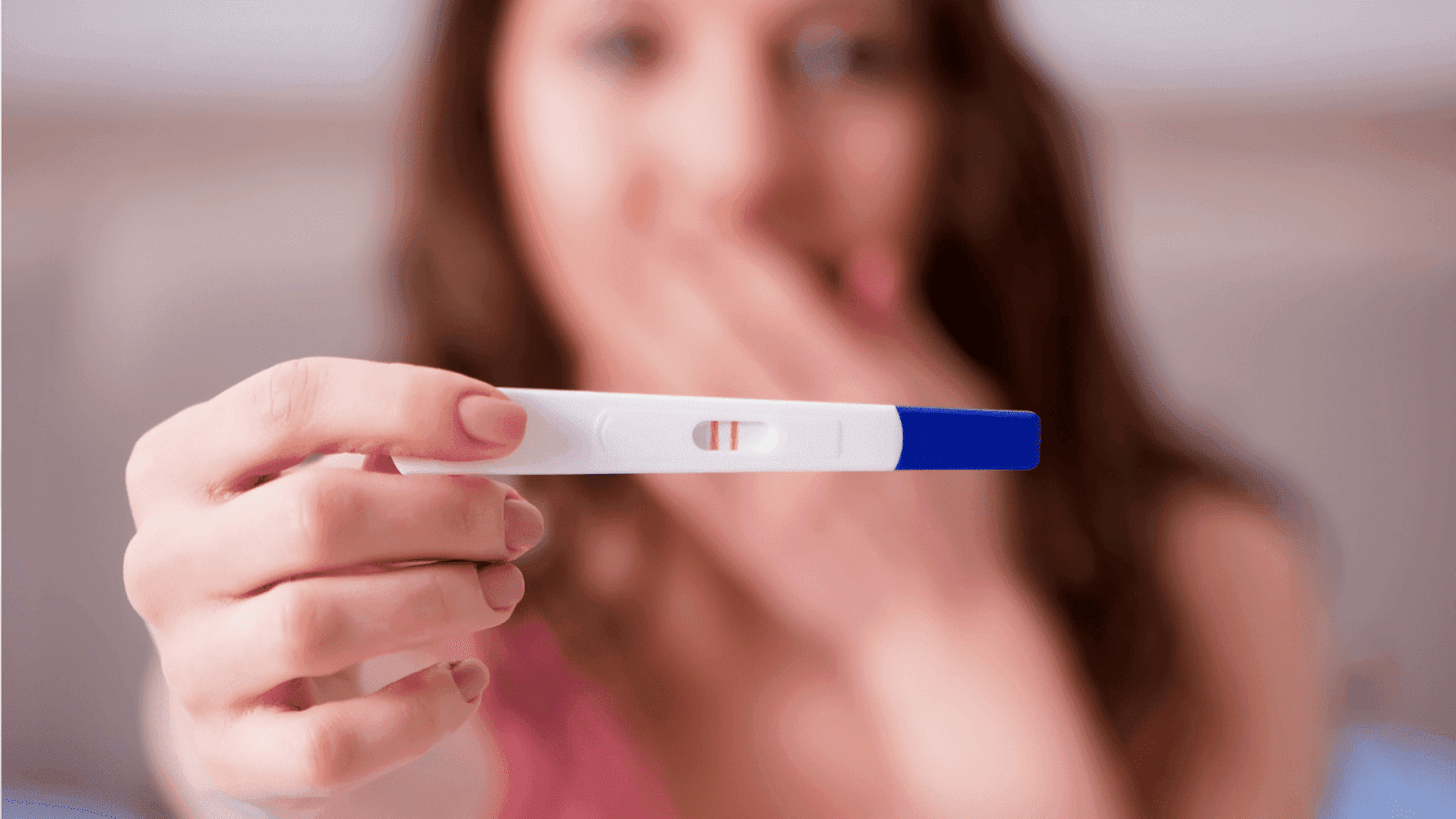Discovering that you might be pregnant can be both exciting and nerve-wracking. Whether you’re trying to conceive or caught off guard, recognizing the early signs of pregnancy is crucial to ensuring timely care and making informed decisions about your health. This comprehensive guide will walk you through the most common early pregnancy symptoms, what they mean, and how to get the care you need, quickly and conveniently.
Understanding Early Pregnancy: What to Expect
Pregnancy begins at conception, but the earliest symptoms often appear before you even miss your period. These subtle changes can vary widely from person to person, making it tricky to know for sure if you’re pregnant without a test. Early pregnancy symptoms are your body’s way of signaling that it’s adapting to a new life growing inside you. Common early signs include fatigue, nausea, and breast tenderness, but some women may also experience a heightened sense of smell or mood swings. Each experience is unique, and understanding your body’s signals can be both exciting and overwhelming.
Recognizing these signs early can help you take better care of yourself and your baby. It also allows you to seek medical advice promptly, which is especially important if you have underlying health conditions or experience unusual symptoms. For instance, if you notice severe cramping or heavy bleeding, it’s crucial to consult with a healthcare professional immediately, as these could be signs of complications. Additionally, early awareness can empower you to adopt healthier habits, such as improved nutrition and regular prenatal vitamins, which are essential for fetal development.
 Why Early Detection Matters
Why Early Detection Matters
Early detection of pregnancy enables you to start prenatal care sooner, which is vital for the health of both mother and baby. It also helps you avoid substances and activities that could be harmful during pregnancy, such as certain medications, alcohol, or strenuous exercise. Moreover, knowing early allows you to plan your lifestyle and make necessary adjustments to support a healthy pregnancy journey. This includes scheduling regular check-ups, discussing your health history with your doctor, and considering genetic screening options if applicable.
Furthermore, early detection can also provide emotional benefits. The knowledge that you are pregnant can lead to a sense of joy and anticipation, but it can also bring about anxiety and uncertainty. By seeking early prenatal care, you can access resources and support systems that help you navigate these feelings. Engaging with a community of expectant parents or joining prenatal classes can offer valuable insights and reassurance, making the transition into parenthood a more informed and supported experience. Understanding the changes occurring in your body can foster a deeper connection with your pregnancy and help you prepare mentally and physically for the journey ahead.
Common Early Symptoms of Pregnancy
While every pregnancy is unique, some symptoms are more commonly experienced in the first few weeks. Here’s a closer look at the early signs that might indicate you’re pregnant.
1. Missed Period
One of the most obvious and reliable early signs of pregnancy is a missed menstrual period. If your cycle is regular and you suddenly skip your period, it’s a strong indication that pregnancy might have occurred. However, stress, hormonal imbalances, and other factors can also cause missed periods, so it’s important to confirm with a pregnancy test. Additionally, some women may experience light bleeding or spotting, which can be mistaken for a period, further complicating the early detection of pregnancy.
2. Nausea and Morning Sickness
Many women experience nausea, often referred to as morning sickness, during the early weeks of pregnancy. Despite the name, nausea can occur at any time of day or night. This symptom usually starts around the 4th to 6th week of pregnancy and can range from mild queasiness to severe vomiting. Morning sickness is believed to be caused by hormonal changes, particularly the rise in human chorionic gonadotropin (hCG) and estrogen levels. While unpleasant, it’s generally a sign that your body is adjusting to pregnancy. Some women find relief through small, frequent meals or ginger tea, which can help settle the stomach.
3. Breast Changes
Early pregnancy often brings noticeable changes to your breasts. They may feel tender, swollen, or sore due to increased blood flow and hormonal shifts. You might also notice that your nipples become darker and more sensitive, and the veins on your breasts become more visible. These changes are not only physical but can also serve as an emotional reminder of the new life developing within. Many women find that wearing a well-fitted bra can provide comfort and support during this time of change.
4. Fatigue
Feeling unusually tired is a common early symptom of pregnancy. The body is working hard to support the developing embryo, which can cause you to feel exhausted even after a full night’s sleep. Increased progesterone levels contribute to this fatigue, making rest essential during early pregnancy. It’s not uncommon for women to experience a sudden need for naps or to feel more lethargic than usual. Prioritizing rest and listening to your body’s signals can be beneficial as you navigate this new phase of life.
5. Frequent Urination
In the early stages, you might find yourself needing to urinate more often. This happens because pregnancy increases blood flow to your kidneys, which helps your body eliminate waste more efficiently. Additionally, the growing uterus puts pressure on your bladder, contributing to this symptom. As the pregnancy progresses, this frequent urination may continue, especially in the later stages when the baby is larger and pressing against the bladder. Staying hydrated is important, but you may want to plan bathroom breaks during outings.
6. Mood Swings
Hormonal fluctuations during early pregnancy can affect your mood, leading to feelings of irritability, anxiety, or emotional sensitivity. These mood swings are normal but can be challenging to manage. Support from loved ones and self-care practices can help ease emotional ups and downs. Engaging in relaxing activities such as yoga, meditation, or even journaling can provide an outlet for these feelings, helping you to process the whirlwind of emotions that often accompany pregnancy.
7. Food Cravings and Aversions
Many pregnant women notice changes in their appetite, including cravings for certain foods or aversions to others. These changes are linked to hormonal shifts and can vary widely. While cravings are often harmless, it’s important to maintain a balanced diet to support your baby’s development. Some women find themselves desiring foods they previously disliked, while others may develop strong aversions to favorite meals. Keeping a food diary can help track these changes and ensure you’re getting the nutrients you need.
8. Light Spotting or Cramping
Some women experience light spotting or mild cramping in early pregnancy, often referred to as implantation bleeding. This occurs when the fertilized egg attaches to the lining of the uterus. While usually harmless, any heavy bleeding or severe pain should be evaluated by a healthcare professional. It’s important to differentiate between normal early pregnancy symptoms and those that may indicate complications. Understanding your body’s signals can empower you to seek help when necessary, ensuring both your health and that of your developing baby.
Confirming Pregnancy: Tests and Next Steps
If you recognize several of these symptoms and suspect you might be pregnant, the next step is to confirm it with a pregnancy test. Home pregnancy tests are widely available, easy to use, and can provide accurate results as early as the first day of your missed period.
 When to Take a Pregnancy Test
When to Take a Pregnancy Test
For best results, take a home pregnancy test in the morning when your urine is most concentrated. If the test is negative but you still suspect pregnancy, wait a few days and test again. Blood tests performed by healthcare providers can detect pregnancy earlier and with greater accuracy.
What to Do After a Positive Test
Once you’ve confirmed pregnancy, it’s important to schedule a visit with a healthcare professional to begin prenatal care. This includes monitoring your health, discussing lifestyle changes, and planning for a healthy pregnancy.
For those seeking convenient and affordable care, Doctronic.ai offers 24/7 video visits with licensed doctors across all 50 states. Doctronic’s AI-powered platform provides fast, personalized medical advice and can help you understand your symptoms and next steps without leaving your home.
When to Seek Medical Attention
While many early pregnancy symptoms are normal, certain signs warrant immediate medical attention. If you experience heavy bleeding, severe abdominal pain, dizziness, or fainting, contact a healthcare provider right away. These could be signs of complications such as ectopic pregnancy or miscarriage.
Doctronic.ai can be an excellent first point of contact for urgent questions or concerns. Their AI doctor synthesizes the latest medical research to provide accurate, evidence-based guidance quickly, helping you decide whether you need in-person care.
Supporting Your Health During Early Pregnancy
Taking care of your body during early pregnancy lays the foundation for a healthy journey ahead. Here are some essential tips to support your well-being:
Nutrition: Eat a balanced diet rich in fruits, vegetables, whole grains, and lean proteins. Prenatal vitamins, especially folic acid, are crucial for fetal development.
Hydration: Drink plenty of water to stay hydrated and support increased blood volume.
Rest: Prioritize sleep and listen to your body’s need for extra rest.
Avoid Harmful Substances: Steer clear of alcohol, tobacco, and unapproved medications.
Manage Stress: Practice relaxation techniques such as deep breathing, meditation, or gentle exercise.
Why Choose AI-Powered Telehealth for Early Pregnancy Care?
In today’s fast-paced world, access to reliable healthcare can sometimes be a challenge. This is where AI-powered telehealth services like Doctronic.ai shine. They combine cutting-edge artificial intelligence with expert medical knowledge to provide personalized, timely care from the comfort of your home.
Doctronic.ai is revolutionizing direct-to-patient care by offering free AI doctor visits that synthesize the latest peer-reviewed medical research. This means you get answers grounded in the most current and trusted medical science. Plus, if you need further care, you can book affordable video visits with licensed doctors anytime, anywhere in the U.S.
With over 10 million users and growing rapidly, Doctronic.ai is becoming the go-to resource for those seeking smarter, faster, and more personal medical care. When it comes to early pregnancy symptoms or any health concerns, having a knowledgeable AI doctor that remembers your history and provides comprehensive advice can make all the difference.
Smart Support for Early Pregnancy Signs
Spotting early pregnancy symptoms is the first step toward embracing the incredible journey of motherhood. While the signs can be subtle and sometimes confusing, paying attention to your body and seeking timely care is essential. Whether you’re confirming pregnancy or managing early symptoms, Doctronic.ai offers a convenient, trustworthy way to get the support you need.
Remember, every pregnancy is unique, and if you ever feel uncertain about your symptoms or health, don’t hesitate to reach out to a healthcare professional. Early care and informed decisions set the stage for a healthy pregnancy and peace of mind.
Your Next Step: Consult with Doctronic's AI Doctor
Embarking on the journey of pregnancy is a profound experience, and having the right support is essential. Doctronic is here to provide you with the most personal, smart, and fast medical advice at this critical time. Our AI-powered doctor is ready to answer your questions, offer treatment recommendations, and remember every detail of your health history. Experience primary care that's tailored to you and available 24/7. Skip the line. Talk to an AI Doctor Now, for free.



 Why Early Detection Matters
Why Early Detection Matters When to Take a Pregnancy Test
When to Take a Pregnancy Test